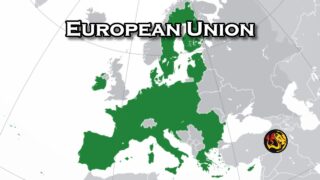
By Stefan J. Bos, Chief International Correspondent Worthy News
BERLIN/BRUSSELS/BUDAPEST (Worthy News) – The European Union has unveiled an unprecedented $841 billion “ReArm Europe Plan” amid fears the United States will dramatically reduce its military commitment to the old continent.
The proposal calls for EU member states to increase budgets by 1.5 percent of gross domestic product (GDP), equivalent to $683.5 billion over four years. Additionally, there will be $157.5 billion in defense investment loans, announced the EU’s executive European Commission President Ursula von der Leyen.
The announcement came on the eve of an emergency EU meeting in Brussels Thursday following a week of increasing political uncertainty from Washington, where President Donald J. Trump questioned both the U.S. alliance to Europe and the defense of Ukraine.
“I do not need to describe the grave nature of the threats that we face,” von der Leyen warned. “Or the devastating consequences that we will have to endure if those threats would come to pass.”
EU nations can unleash state funding under emergency measures that exempt governments from strict deficit spending rules that ensure members maintain low government debt or reduce high debt to sustainable levels.
Von der Leyen pledged that all financial means are at the continent’s disposal to help member states urgently ramp up defense capabilities to meet “immediate threats” and through the remainder of the 2020s.
EU CONCERNED
The largest military spending since the end of the Cold War comes amid growing uncertainty about the U.S.’s future role in Europe.
The EU plan was already prepared but got a sense of urgency after Trump’s decision Tuesday to pause military aid to wartorn Ukraine while it fights against invading Russian troops.
Brussel’s ReArm proposal threw a lifeline to Germany, where the planned military spending bonanza could be a game-changer for its stuttering industries, analysts said.
German defense companies were already seeking more capacity Wednesday, eyeing the ailing car industry. After two years of contraction, it was the first sign of a shift that could help revive the continent’s biggest economy.
While controversial in a nation that started two World Wars, manufacturers of tanks, radar, and weapons aim to ramp up production.
They are looking to facilities of car makers, long Germany’s economic powerhouse, who are cutting jobs and closing factories due to slow demand and a creaking electric vehicle transition.
AMMUNITION MAKER
Rheinmetall, Europe’s top ammunition maker, said it would repurpose two plants producing automotive parts to make defense equipment.
Hensoldt, which makes the TRML-4D radar systems being used by Ukraine in its war with Russia, is in talks to take on around 200 workers from significant auto parts suppliers Bosch) and Continental, executives said.
“We are benefiting from the difficulties in the automotive industry,” Hensoldt’s chief executive Oliver Doerre said in published remarks.
Further investment could more than double the TRML-4D’s annual production to between 25 and 30, Reuters news agency reported, citing Doerre.
Given its war-tainted history, Germany has long been reluctant to take on debt.
Yet the parties hoping to form its next government have agreed to create a 500 billion euro ($540 billion) infrastructure fund and exempt defense spending from debt rules as they rush to rearm.
Copyright 1999-2026 Worthy News. This article was originally published on Worthy News and was reproduced with permission.
Latest News from Worthy News
Senior Hamas leader Khaled Mashaal on Sunday reaffirmed the terrorist group’s refusal to disarm, rejecting demands from U.S. President Donald Trump and vowing to continue the fight against Israel.
The U.S. government added $696 billion to the national debt over the past four months, borrowing $94 billion in the month of January alone, the Congressional Budget Office reports.
Anti-ICE protests continued in Minneapolis over the weekend, resulting in dozens of arrests by local law enforcement.
Authorities across North Africa and southern Europe remained on high alert Monday after powerful storms killed numerous people and forced the evacuation of more than 160,000 residents.
Ukraine’s foreign minister has warned that intensified Russian attacks on his country’s energy infrastructure are creating a direct risk of a nuclear incident that could affect all of Europe.
Official results confirmed Monday that Socialist Party candidate António José Seguro won Portugal’s presidential election with 66.7 percent of the vote, defeating André Ventura of the right-wing nationalist Chega (“Enough”) party.
Despite what advocates describe as decades of persecution, discrimination, and insecurity, Pakistan’s Christians remain steadfast in their faith and committed to peaceful coexistence, a leading Christian rights advocate said Friday.







